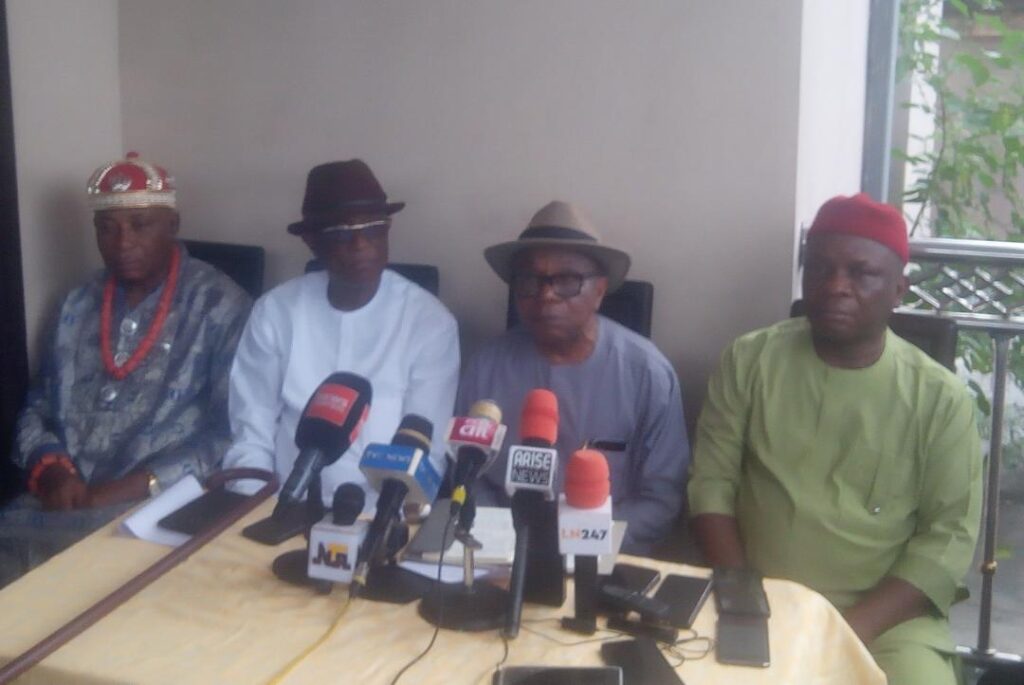A former Attorney General of Abia State, Chief Theo Nkire, has said that the recently approved sixth state to be created for the Southeast should be Aba State, noting that creating Aba State is tantamount to creating a mini Nigeria.
Nkire, the spokesperson for the Aba State movement, spoke to newsmen during a press conference in Aba, stating that although there are many agitations for state creation in the Southeast, Aba State’s case is different, distinct, and unique, capable of accommodating all Nigerians.
Explaining why Aba State’s case is different, Nkire said Aba has fulfilled all constitutional requirements as stipulated by Section 8 of the Nigerian Constitution.
Describing Aba as a home for all Nigerians, he said that after Aba was approved for a referendum by both arms of the National Assembly on 16 June 1983, the military takeover of 31 December 1983 truncated the referendum.
He noted that some of the states recommended for creation in 1983 alongside Aba, including Adamawa, Jigawa, Katsina, Kogi, Taraba, and Enugu, have since been created—except Aba.
Nkire stressed that Aba State is distinct because of the homogeneity of the communities making the demand, the unaltered boundaries through decades of advocacy, and the fact that every part of Igbo land is represented in Aba.
Regarding economic viability, he said Aba State can survive on Internally Generated Revenue (IGR).
The proposed Aba State, which comprises nine local councils, Aba North, Aba South, Osisioma, Obingwa, Ugwunagbo, Isiala-Ngwa North, Isiala-Ngwa South, Ukwa West, and Ukwa East was historically the epicentre of the Eastern palm oil belt.
The pioneer Abia Attorney General said the pre-eminence of the Aba metropolis in commerce and industry is well documented and has extended throughout most parts of the proposed state.
“There are large markets like the famous Ariaria International Market, a sub-regional market for West and Central Africa, as well as smaller markets. Manufacturers, including multinationals, are based in Aba, which is home to the largest shoe and leather clusters in Nigeria. Aba people are skilled in all types of engineering fabrications,” he added.
Nkire further highlighted natural resources, stating, “There are about 124 operational oil wells, and oil and gas are abundant in different areas of the proposed Aba State. There are also capped oil wells in some parts. Ukwa West Local Government, in addition to its oil well, has one of the highest and most qualitative gas reserves in Nigeria. Solid minerals such as zinc, uranium, lead, and gold are also found in the proposed state.”
He also mentioned energy infrastructure, noting that the 188-megawatt Geometric Power Plant in Osisioma Ngwa has adequate capacity to ensure uninterrupted electricity supply to all parts of the proposed state, which will accelerate industrialisation.
Nkire said that twice in history, Ohanaeze Ndigbo had recognised Aba as the sixth state for the Southeast: first by a committee headed by Chief Emmanuel Iwuanyanwu in 2015, and three years later by another committee headed by Prof. Chigozie Ogbu.
He pleaded with the National Assembly to confirm Aba State as the sixth Southeast State, asserting that none of the other proposals possess the distinct, unique qualities of the proposed Aba State.















